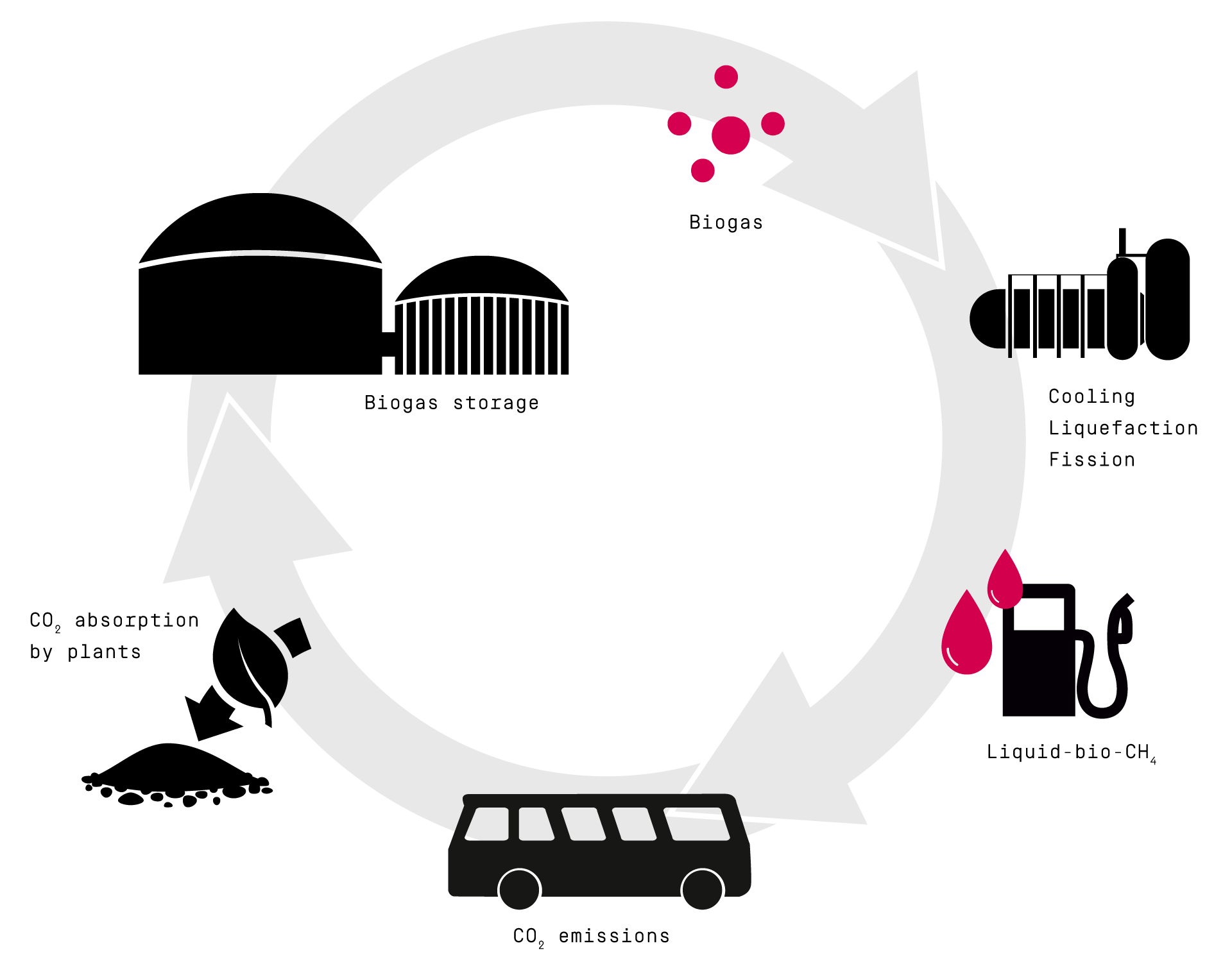CMF fuel: Bio-LNG from regional residues for sustainable mobility
Our mission: Biogas plants supply heavy commercial vehicle fleets with fuel from the region that is good for the climate.
Biogas plant operators are instrumental in a successful mission. The biogas plant operators concentrate on their core business: Which advanced feedstocks are available in the region, how can they be best utilized to produce the valuable energy source biogas.
CM Fluids is your partner on the side for the way into the future: We take care of everything necessary between biogas plant and filling station such as technology selection, approval, financing and operation of the bio-LNG plant. Profit from our experience and the success of CM Fluids.
regional
partnership
price stable

CM Fluids stands for a sustainable circular economy in which resources are used again and again.
Existing biogas plants provide us with the basis. They are real all-rounders when it comes to the utilization of regional residues. For example, liquid manure and dung can be fermented in the biogas plant. This produces the usable energy source biogas. The nutrients and fibers, which are important for humus formation and natural fertilization, return to the field in the form of the fermentation product. This replaces mineral fertilizer.
In this way, our cycle removes CO2 from the atmosphere with each circulation, stores it long-term as humus in the soil, and thus helps to bring our climate back into balance.
The biogas is very valuable for us. On the one hand, it contains Bio-CO2, which was filtered from the atmosphere by plants with the help of sunlight. We make it storable and transportable so that it can displace fossil carbon dioxide (CO2) or be used in the future to produce synthetic fuels (e-fuels).
On the other hand, biogas consists largely of biomethane, a molecule that carries a lot of energy with it. In its gaseous state, biomethane is very voluminous and therefore difficult to transport or store. That’s why we liquefy it directly on site at the biogas plant: the energy of 600 liters of gaseous biomethane is in one liter of Bio-LNG (liquid biomethane).
Bio-LNG has an energy density comparable to diesel. Therefore, it is perfectly suited as a fuel for heavy-duty commercial vehicles such as trucks or buses.
In our cycle, as in nature, carbon serves as a carrier molecule for energy. After the energy has been consumed in the vehicle, the molecule can be taken up again by plants.
This closes our CM Fluids loop, which is both economical and sustainable.
With Bio-LNG in the future
Liquid natural gas (LNG) has been used for several years in the transport sector to power commercial vehicles. Over 100 LNG filling stations in Germany and a Europe-wide network of filling stations enable the widespread use of LNG for trucks..
The molecular structure of liquid biomethane is chemically identical to that of synthetic natural gas produced from hydrogen and CO2. By the time green hydrogen production is ramped up, bio-LNG can already displace a lot of diesel. Then hydrogen can be converted into e-LNG with bio-CO2 and put into the vehicles and fueling stations that have already been tested. In this way 100% of fuel demand can be met in a climate-positive way. The advantage of e-LNG compared with hydrogen as a precursor is that it can be stored and transported much more easily.
There are already 9,500 biogas plants in Germany. Existing biogas could replace 20% of today’s diesel consumption.
With less than 10% percent of the biogas currently (2023) produced, all city buses in Germany could be operated CO2-neutral.
Bio-LNG:
- Climate positive.
- For heavy commercial vehicles.
- Bio-CO2 for e-fuels.
- Fill up 500l in 5 minutes.
You have a biogas plant and would like to produce Bio-LNG? Get in contact!





